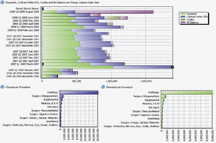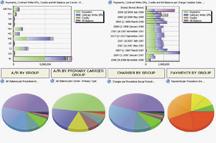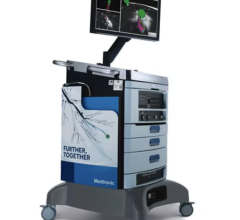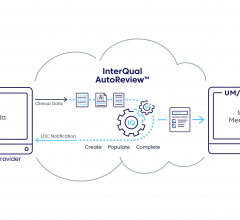
Liquidation - graphically shows how the charges are being liquidated (or turned into cash).
The medical industry has historically used technology to focus primarily on advances on the clinical and disease management sides of physician practices. Additionally, the healthcare industry has traditionally lagged behind in technology investment and initiatives on the financial side in comparison to other industries. However, given the current economic situation, one of the most critical components to physician-group survival is the ability to mine, present and use meaningful financial information to support decisions in their practice. A decision support system (DSS) is instrumental in tracking and analyzing this data. From complex joint ventures to determining referral patterns and managed care contract profitability, more and more, the science of business is being applied to the practice of medicine.
While some believe the healthcare industry is relatively recession proof, the reality is the practice of medicine is also a business. If physicians aren’t collecting fully on payments from carriers and patients, they cannot run their business, and therefore, can’t stay in practice. In order to continue to take care of patients, physicians need trusted technology and added support on the financial side. One important characteristic of technology is that it must not require extra work to gather data, but should instead be a derivative of normal flow in a practice. While much of mainstream media has focused on clinical electronic health records (EHRs), it is the lack of investment in technology on the financial side of medicine that has cost more practitioners their business than any EHR could hope to save.
Key performance indicators
There are many common examples of how decision support technology can help a practice. Once a contract is signed with an insurance carrier, healthcare providers must ensure the carrier is living up to the agreement, which is a continual challenge. Employing software to monitor reimbursement amounts from each individual carrier will ensure physicians are collecting the correct amount of money for procedures performed and services rendered. By utilizing advanced technology and a sophisticated DSS system, practices are better equipped to identify, react and report on these variant payments.
Another necessity for physicians, given the current economic times, is the use of DSS as an efficient reporting module. DSS enables physicians to drill down into their financial information in order to quickly get to the desired answer. Some newer software platforms provide industry-specific business intelligence; enabling physicians to effectively data mine, drill down, chart and analyze their data in a robust and meaningful way. Some DSS even include key performance indicators (KPIs) representing best practices for viewing and digesting information and comparing actual performance to industry targets. These systems provide real-time access to data in a meaningful way without interrupting the flow of a practice.
Additionally, more robust offerings allow physicians and administrators to publish and/or subscribe to specific reports or to be alerted when a practice metric is out of statistical control. This pushes the desired information to identified recipients and eliminates barriers to efficiently sharing information.
Efficiency and accuracy are of the utmost importance when collecting payments and managing a physician practice. Decision support systems are being utilized by practices for financial reporting, understanding profit centers and identifying opportunities for potential growth. DSS support budget management, revenue cycle, cost accounting, referral patterns, pay for performance metrics, cash flow and payer analysis. By consolidating this information down to a single system, analysis and reporting time are reduced to seconds as opposed to the many hours administrators used to spend massaging and manipulating data in disparate systems.
Furthermore, DSS allow practices to better monitor performance. This is not limited solely to financial performance, but administrators are also able to monitor the productivity of individual centers, referral patterns and trends, physicians, transcriptionists, schedulers and all back office billing support personnel. No longer do administrators have to rely on others to tell them what they did for the practice, because they can see it for themselves.
Performance, and even underperformance, can both be quickly and proactively measured and monitored to help assess areas of weakness for a practice. The ability to identify these areas quickly helps a practice address an area before it becomes a costly problem. DSS are also allowing practices to proactively manage their practices in an effective and efficient manner.
Generate key reports
DSS give improved reporting thereby giving physicians the ability to see trends and communicate such information to various stakeholders, including accountants, banks and partners. The systems allow a centralized reporting tool to monitor virtually every facet of the financial side of medical practices. This allows for more precise preparation, forecasting and budgeting.
Another major advantage, especially given today’s economy, is that performance metrics, such as collections, employee productivity and effectiveness can all be monitored making everyone more accountable. The reporting tool helps protect the business so physicians can focus on providing the best services to their patients.
DSS offer an improved ability to target and estimate the impact of various initiatives, such as pending reimbursement changes, the impact of contracts on volume and even predicting staffing levels, which allows the practice to quickly adapt to the current and ever changing market landscape. By using DSS technology, physician practices are able to move away from the large amount of work that goes hand in hand with loads of paperwork.
Keep DSS Current
It’s important to note that the benefits of utilizing DSS will continually evolve, which requires continued planning and analysis, but after a few months, both will become easier. There should also be proper investment in employee training to make sure the individuals using the system understand the results and can respond accordingly.
Without closely monitoring the revenue and costs associated, a practice cannot be run successfully. With carriers providing less reimbursement, the only way physicians can maintain their income is to reduce their cost of doing business through technology. As physicians spend the majority of their time tending to patient’s clinical needs, the practice of the future will invest in technology to help them apply the same science to the business side of the practice. Decision support systems are now, and will be in the future, a valuable and essential tool in monitoring and reporting the success of any medical practice.
Author: T. Scott Law is the president and CEO of Zotec Partners, the Indianapolis-based medical billing, practice management and radiology information systems (RIS) software provider. Zotec offers a comprehensive suite of medical billing services and practice management tools designed to make operations more efficient and productive in medical offices.
For information on Zotec Partners, visit www.zotecpartners.com.




 May 22, 2024
May 22, 2024 









